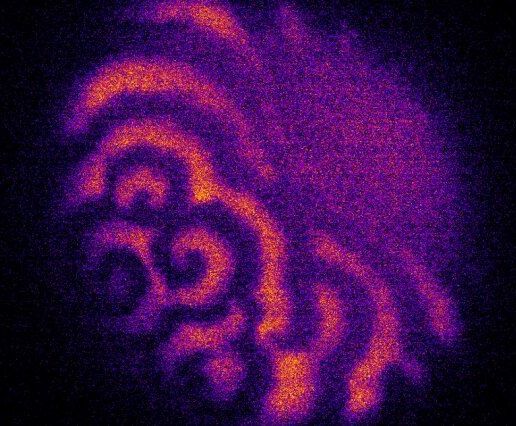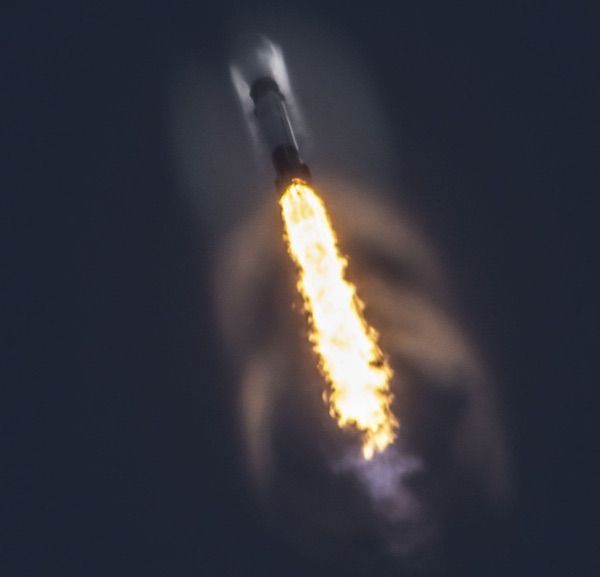When an egg cell of almost any sexually reproducing species is fertilized, it sets off a series of waves that ripple across the egg’s surface. These waves are produced by billions of activated proteins that surge through the egg’s membrane like streams of tiny burrowing sentinels, signaling the egg to start dividing, folding, and dividing again, to form the first cellular seeds of an organism.
Now MIT scientists have taken a detailed look at the pattern of these waves, produced on the surface of starfish eggs. These eggs are large and therefore easy to observe, and scientists consider starfish eggs to be representative of the eggs of many other animal species.
In each egg, the team introduced a protein to mimic the onset of fertilization, and recorded the pattern of waves that rippled across their surfaces in response. They observed that each wave emerged in a spiral pattern, and that multiple spirals whirled across an egg’s surface at a time. Some spirals spontaneously appeared and swirled away in opposite directions, while others collided head-on and immediately disappeared.




